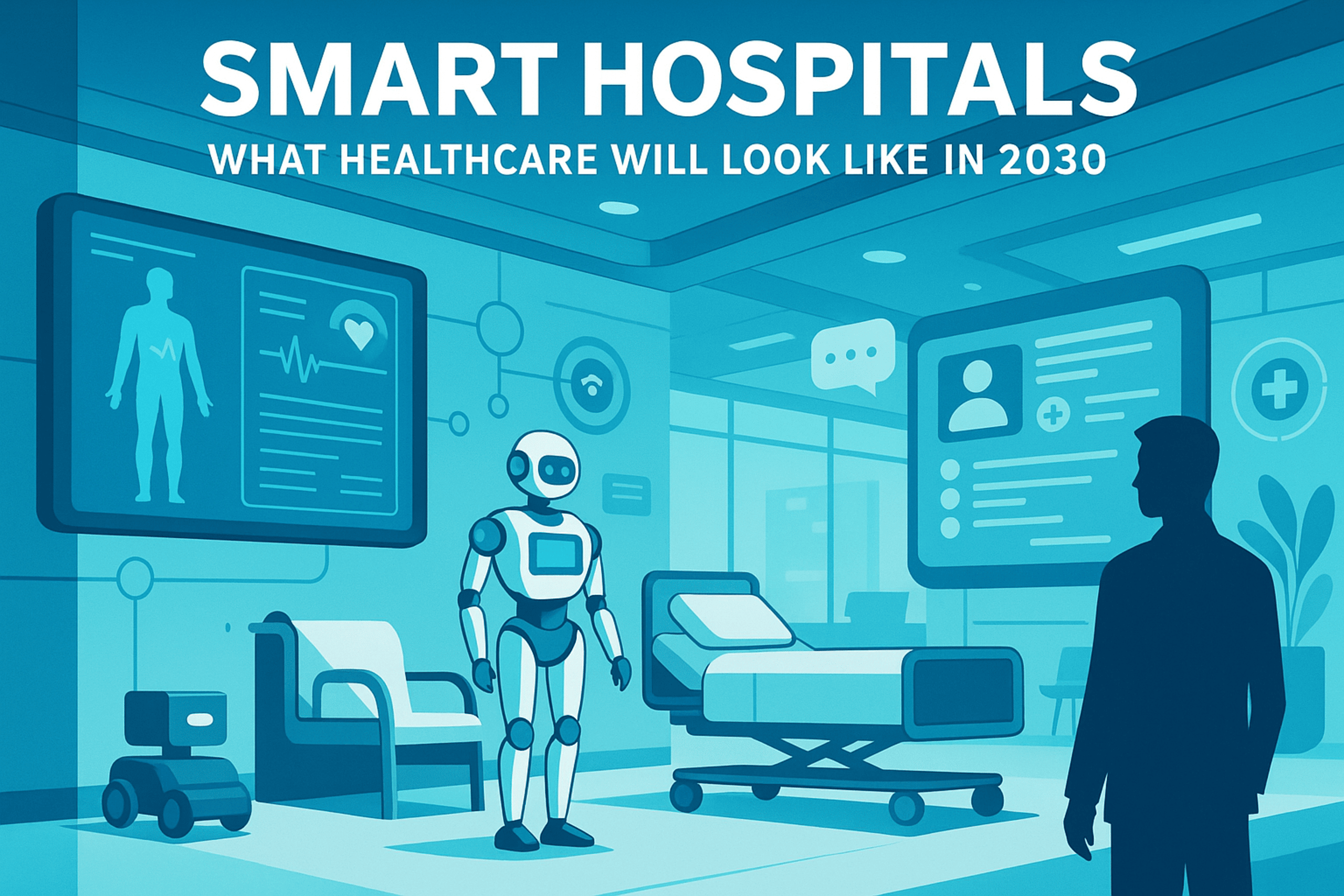Imagine walking into a hospital that already knows your medical history, guides you with facial recognition, and has robots assisting doctors in surgery — all without standing in line. This isn’t a sci-fi fantasy. By 2030, smart hospitals are expected to become the new standard in healthcare.
Let’s explore what the future holds and how it will transform the way we experience medicine.
🤖 What Is a Smart Hospital?
A smart hospital uses advanced technologies like Artificial Intelligence (AI), Internet of Things (IoT), robotics, big data, and automation to:
- Improve patient care,
- Reduce wait times,
- Enhance medical accuracy,
- And optimize hospital management.
It’s not just about having digital tools. It’s about creating an intelligent, interconnected system that learns and adapts to serve both patients and staff better.
🔮 What to Expect in Hospitals by 2030
1. AI-Powered Diagnostics
AI will analyze patient records, symptoms, and test results in seconds — offering faster, more accurate diagnoses.
💡 Example: AI can detect early signs of cancer from scans or flag rare diseases that might be missed by doctors.
2. Wearables and Remote Monitoring
Smartwatches and biosensors will track patients’ vitals in real-time, even after discharge. Hospitals will use this data to predict complications before they happen.
💬 “Your doctor could call you before you even know something’s wrong.”
3. Robot-Assisted Surgery and Automation
Surgical robots will enhance precision and reduce human error. Meanwhile, delivery bots and automated medication systems will improve hospital efficiency.
🛠️ Tasks like cleaning, delivering food, or restocking supplies will be handled by robots 24/7.
4. Digital Twins of Patients
Hospitals may create a digital version of your body using your health data, imaging, and lab results. Doctors will test treatments on your digital twin before prescribing them in real life.
5. Smart Rooms and Voice Assistants
Patient rooms will adapt based on the patient’s needs — adjusting temperature, lighting, or even sending alerts to nurses when help is needed.
Smart assistants (like Alexa for healthcare) will allow voice-based tasks:
“Nurse, I need help” → Immediate response
“Turn off the lights” → Done.
6. Zero Paper, 100% Cloud-Based Records
By 2030, hospitals will be paperless. All records will be stored securely in the cloud, instantly accessible to authorized professionals anywhere in the world.
🧠 Benefits of Smart Hospitals
- 🕒 Faster, personalized care
- 🧪 Fewer medical errors
- 🧍♀️ Reduced burden on healthcare staff
- 🌍 Increased accessibility, even in remote areas
- 💰 Lower long-term costs through automation and efficiency
🚧 Challenges to Overcome
While the future looks bright, some concerns remain:
- Cybersecurity – Protecting patient data from breaches
- Training gaps – Staff must adapt to new tech
- Digital divide – Ensuring all patients can access smart services
- Ethical concerns – Balancing AI automation with human judgment
🏁 Final Thoughts
By 2030, smart hospitals will be smarter, faster, and more human-centric than ever before. These futuristic facilities will blend compassion with cutting-edge technology to deliver care that’s not just effective, but also efficient and personalized.
The hospital of tomorrow isn’t just about machines — it’s about smarter decisions, faster healing, and better lives.
🚀 What feature of future hospitals are you most excited about? Let us know in the comments below!


